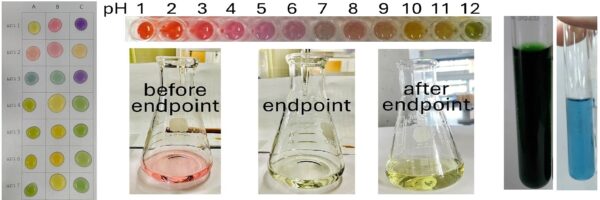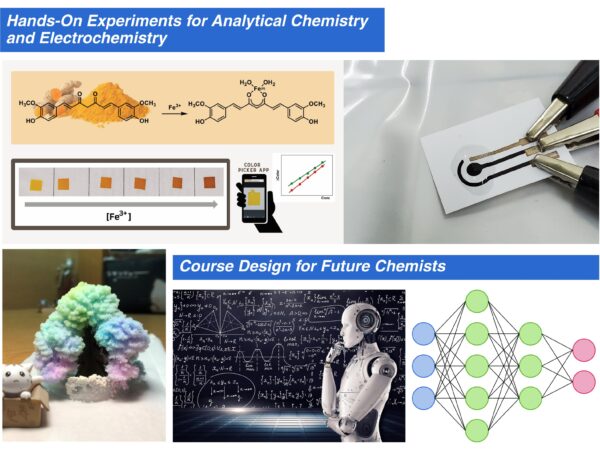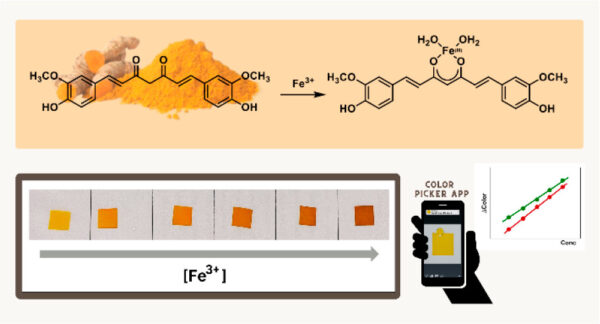Research Themes
Chemical Education
Experimental design with sustainable practice for chemistry laboratory.
Many experiments for chemistry laboratory (general or inorganic chemisty) are designed with the aim of using small amounts of chemical substances or natural compounds, e.g., an experiment on buffers using 6 drops, natural indicator extracted from flowers for acid-base titration, spectrochemical series using solutions prepared using test-tube scale.
Laboratory experiments and curriculum design to improve students’ learning in electrochemistry and analytical chemistry
Our research focuses on developing innovative, hands-on laboratory experiments and workshops in electrochemistry and analytical chemistry to enhance the learning experiences of undergraduate and graduate students. These activities are designed to bridge theory and practice, enhance critical thinking and communication skills, and incorporate advanced techniques. Additionally, we engage in curriculum mapping, feedback integration, and skill development to implement data-driven design and reforms of undergraduate and graduate chemistry courses and programs.
Colorimetric Analysis, Laboratory Instruction, hands-on laboratory experiments
The research focuses on innovative methods to enhance learning experiences and outcomes in chemistry. A portable experiment to determine Fe(III) concentration using digital image colorimetry with curcumin paper was presented. Students used smartphones to capture color changes from yellow to red-orange, creating calibration curves to measure Fe(III). Implemented over three semesters with 591 students, the experiment provided a hands-on experience at home, enhancing technical skills and interest, yielding high satisfaction (4.27/5) and post-test scores (81.5%). This method effectively integrates modern technology into analytical chemistry education.






